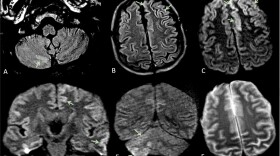-
Health, Science & EnvironmentSome students from the most disadvantaged families may remain behind academically from those who are well-off, but a new book finds that schools in lower-income areas are doing their part to improve results.
-
An Ohio State University researcher pleaded guilty Thursday to lying on grant applications to develop scientific expertise for China.Song Guo Zheng, a…
-
Researchers at the Ohio State Wexner Medical Center have discovered an immune cell in mice that could unlock new therapies to repair or even regrow…
-
A woman who worked at Nationwide Childrens Hospital for a decade has pleaded guilty to stealing trade secrets.Li Chen, formerly of Dublin, worked as a…
-
Federal authorities have accused an Ohio State University researcher and professor of funneling federally funded research to China.The U.S. Attorney for…
-
New research from Battelle concludes that the coronavirus is not detectable on five different library materials after three days.The goal of Battelle's…
-
A study recently published by researchers at The Ohio State University found significant disparities emerging in Ohio's abortion rates over the last…
-
Pictures of the brain in COVID-19 patients are yielding clues that may help identify the virus sooner.
-
Speeding on Ohio's roadways is up during the coronavirus pandemic, according to new research from The Ohio State University. While many drivers stay home,…
-
The 1.5 million-year-old fossils of human ancestors recently unearthed in Ethiopia show sophistication in behaviors and tool use, said the Case Western Reserve University (CWRU) researchers who found them, despite one example having the smallest cranium of any specimen found in Africa to date. One Homo erectus female cranium found is a little less than half the size of our brains, said CWRU anatomy professor Scott Simpson, who worked with the team that discovered the fossils.
© 2025 WOSU Public Media
Play Live Radio
Next Up:
0:00
0:00
Available On Air Stations









